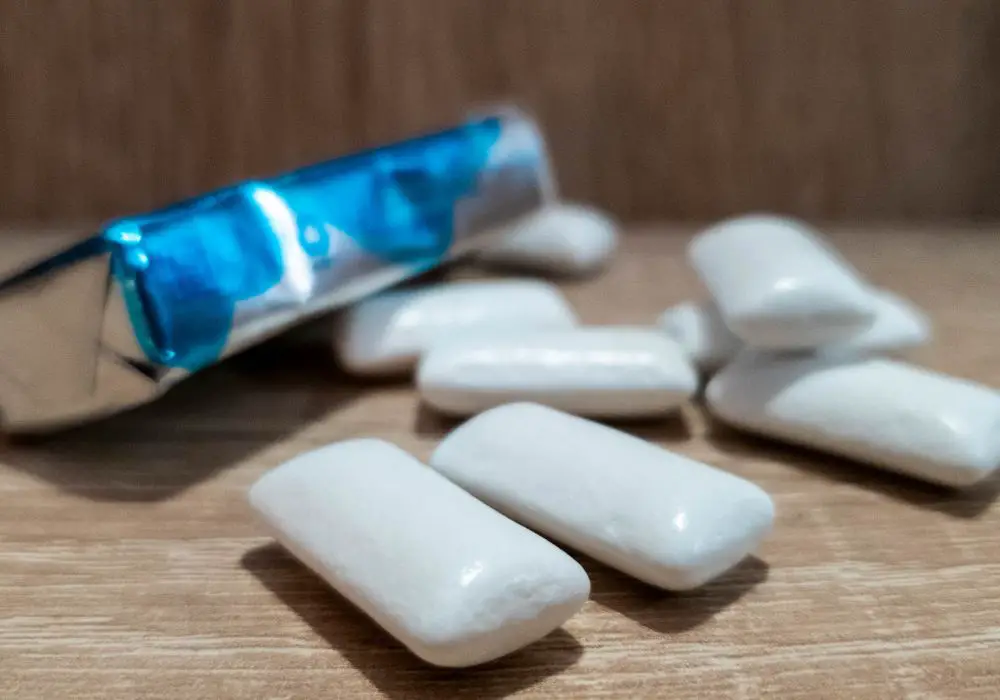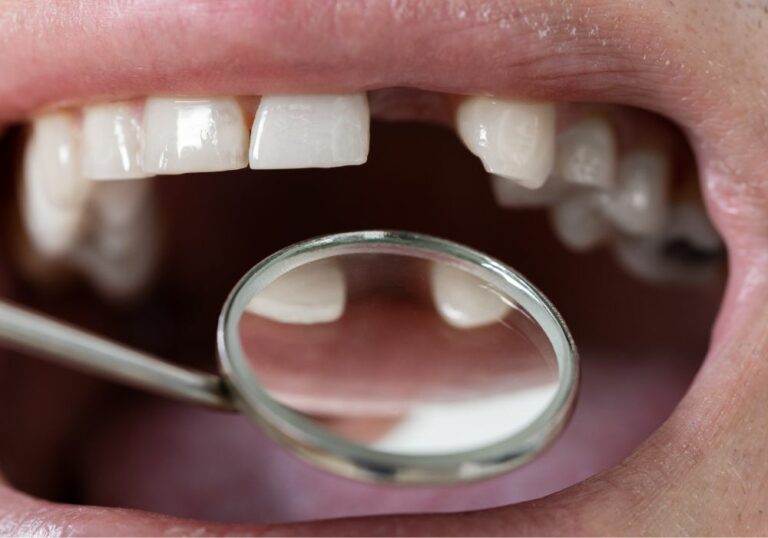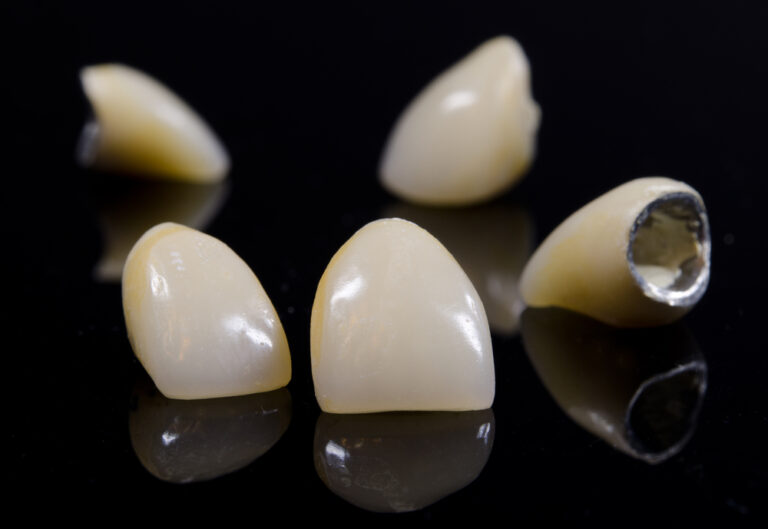Do you ever wonder if chewing gum can actually help clean your teeth? It’s a common question, and the answer is not a simple yes or no. While some types of gum can help remove food particles and stimulate saliva production, which can help neutralize acid and prevent tooth decay, others can actually harm your teeth.
It’s important to understand that not all gum is created equal. Sugar-free gum is generally considered to be the best option for your teeth, as it doesn’t contain the sugars that can cause decay. Additionally, some brands of gum contain xylitol, a natural sweetener that has been shown to reduce the amount of harmful bacteria in the mouth. However, even sugar-free gum can be harmful if it contains acidic flavorings or if it’s chewed for too long.
So, does gum clean your teeth? The answer is that it depends on the type of gum you’re chewing and how you’re chewing it. While gum can help remove food particles and stimulate saliva production, it’s not a substitute for brushing and flossing. It’s important to maintain a good oral hygiene routine and to choose your gum carefully if you want to reap any potential benefits for your teeth.
What is Gum?

If you’re wondering what gum is, you’re not alone. Gum is a chewy substance that people often use to freshen their breath, but it can also have other benefits. In this section, we’ll take a closer look at what gum is made of and the different types of gum available.
Composition of Gum
Gum is typically made from a combination of synthetic and natural ingredients. The exact composition can vary depending on the brand and type of gum, but some common ingredients include:
- Gum base: This is the main ingredient in gum, and it’s what gives it its chewy texture. Gum base is usually made from a combination of synthetic rubbers, waxes, and resins.
- Sweeteners: Gum is often sweetened with sugar or artificial sweeteners like aspartame or xylitol.
- Flavorings: Gum comes in a variety of flavors, from mint to fruit. These flavors are typically added using natural or artificial flavorings.
- Other ingredients: Some gums may also contain additional ingredients like coloring agents, preservatives, or vitamins.
Types of Gum
There are many different types of gum available, each with its own unique characteristics. Here are a few of the most common types:
- Chewing gum: This is the most popular type of gum and is typically used to freshen breath or clean teeth.
- Bubble gum: This type of gum is designed to be blown into bubbles and is usually sweeter than regular chewing gum.
- Nicotine gum: This type of gum is used to help people quit smoking and contains nicotine to help reduce cravings.
- Herbal gum: This type of gum is made from natural herbs and is often used for medicinal purposes.
Overall, gum can be a convenient way to freshen your breath or clean your teeth when you don’t have access to a toothbrush. However, it’s important to choose a sugar-free gum to avoid damaging your teeth.
How Does Chewing Gum Work?
Chewing gum has been around for thousands of years and has been used for various purposes such as freshening breath, fighting hunger, and quenching thirst. But, did you know that chewing gum can also help clean your teeth? Here’s how:
Stimulates Saliva Production
When you chew gum, your mouth produces more saliva than usual. Saliva has a lot of benefits for your oral health, including washing away food particles and neutralizing acids that can cause tooth decay. The increased saliva production from chewing gum can help flush out harmful bacteria and food debris that may be stuck in your teeth.
Removes Plaque and Tartar
Chewing gum can also help remove plaque and tartar from your teeth. Some types of gum contain xylitol, a natural sweetener that helps prevent the growth of bacteria in your mouth. Xylitol can also help reduce the amount of plaque and tartar on your teeth by preventing it from sticking to your teeth.
Strengthens Tooth Enamel
Chewing gum that contains fluoride can also help strengthen your tooth enamel. Fluoride is a mineral that helps prevent tooth decay by making your teeth more resistant to acid attacks from bacteria in your mouth. When you chew gum that contains fluoride, it helps distribute the mineral throughout your mouth, strengthening your teeth and protecting them from decay.
Reduces Bad Breath
Chewing gum can also help reduce bad breath. When you chew gum, it helps stimulate the production of saliva, which can help wash away bacteria and food particles that can cause bad breath. Some types of gum also contain mint or other flavorings that can help freshen your breath. However, it’s important to note that chewing gum is not a substitute for proper oral hygiene, such as brushing and flossing regularly.
Overall, chewing gum can be a helpful addition to your oral hygiene routine. However, it’s important to choose sugar-free gum and to chew it in moderation to avoid any negative effects on your teeth and jaw.
Impact of Gum on Oral Health

Chewing gum has been a popular habit for decades, and it has been claimed that it can help clean your teeth. But is this really true? In this section, we will explore the impact of gum on your oral health.
Benefits of Chewing Gum
Chewing sugar-free gum can have some benefits for your oral health. Here are a few:
- Stimulates Saliva Production: Chewing gum stimulates the production of saliva, which can help wash away food particles and neutralize harmful acids in your mouth. This can help prevent cavities and tooth decay.
- Freshens Breath: Gum with mint or other flavorings can help freshen your breath and mask bad odors.
- Reduces Stress: Chewing gum can help reduce stress and anxiety, which can have a positive impact on your overall health.
Potential Risks
While chewing gum can have some benefits, there are also some potential risks to be aware of:
- Jaw Problems: Chewing gum for extended periods of time can put stress on your jaw muscles and joints, which can lead to jaw pain or even temporomandibular joint (TMJ) disorder.
- Tooth Damage: Chewing gum can also cause damage to your teeth if you chew too aggressively or if the gum is too hard. This can lead to chipped or cracked teeth.
- Digestive Issues: Swallowing gum can cause digestive issues, such as constipation or intestinal blockages.
Overall, chewing gum can have some benefits for your oral health, but it is important to be aware of the potential risks as well. If you choose to chew gum, make sure it is sugar-free and don’t chew it for too long or too aggressively.
Scientific Studies on Gum and Teeth Cleaning
Gum is often associated with bad oral health due to its high sugar content. However, there are some types of gum that can actually help clean your teeth. Scientific studies have shown that chewing sugar-free gum after meals can improve dental health in several ways.
One study published in the Journal of Dental Research found that chewing sugar-free gum for 20 minutes after a meal can help prevent tooth decay by increasing saliva flow. Saliva helps neutralize acid in the mouth and wash away food particles and bacteria that can lead to cavities.
Another study published in the Journal of Clinical Dentistry found that chewing sugar-free gum can help remove plaque and reduce gingivitis. Plaque is a sticky film of bacteria that forms on teeth and can lead to gum disease. Gingivitis is an early stage of gum disease that causes redness, swelling, and bleeding of the gums.
A third study published in the International Journal of Dental Hygiene found that chewing sugar-free gum can help freshen breath and reduce the amount of bacteria in the mouth. This can help prevent bad breath and improve overall oral health.
It is important to note that not all types of gum are beneficial for dental health. Gum that contains sugar can actually promote tooth decay and should be avoided. Look for gum that is sugar-free and contains xylitol, a natural sweetener that has been shown to have anti-cavity properties.
Overall, scientific studies suggest that chewing sugar-free gum can be a helpful addition to your oral hygiene routine. It is not a replacement for brushing and flossing, but it can help supplement your efforts and improve your dental health.
Gum and Dental Hygiene Practices

Chewing gum has been a popular pastime for centuries. It is a simple pleasure that can freshen your breath and help you relax. But can gum actually clean your teeth? The answer is yes and no.
Chewing gum can help to remove food particles from your teeth and stimulate the production of saliva, which is your body’s natural way of cleaning your teeth. However, gum cannot replace the need for regular brushing and flossing.
To maintain good dental hygiene practices, it is recommended that you brush your teeth twice a day with a soft-bristled brush and fluoride toothpaste. You should also floss once a day to remove any food particles that may be stuck between your teeth.
In addition to brushing and flossing, there are other steps you can take to improve your dental hygiene practices. These include:
- Using mouthwash to kill bacteria and freshen your breath
- Avoiding sugary and acidic foods and drinks that can damage your teeth
- Drinking plenty of water to keep your mouth hydrated
- Visiting your dentist regularly for check-ups and cleanings
It is important to note that not all gums are created equal. Some gums are sugar-free and contain xylitol, which is a natural sweetener that can help to prevent tooth decay. Other gums may contain sugar or other ingredients that can be harmful to your teeth.
If you enjoy chewing gum, it is best to choose a sugar-free option that contains xylitol. However, it is important to remember that gum should not be used as a substitute for proper dental hygiene practices.
Alternatives to Gum for Teeth Cleaning
While chewing gum can help clean your teeth, there are other alternatives that can be just as effective. Here are a few options to consider:
1. Brushing and Flossing
Brushing and flossing are the most effective ways to clean your teeth and maintain good oral hygiene. Brush your teeth twice a day for two minutes each time and floss at least once a day. This will help remove plaque and food particles from your teeth and prevent cavities and gum disease.
2. Mouthwash
Mouthwash can help kill bacteria in your mouth and freshen your breath. Look for a mouthwash that contains fluoride, which can help strengthen your teeth and prevent cavities. However, mouthwash should not be used as a substitute for brushing and flossing.
3. Water Flosser
A water flosser, also known as an oral irrigator, is a device that uses a stream of water to clean between your teeth and along your gumline. It can be especially helpful for people with braces or other dental appliances that make flossing difficult.
4. Interdental Brushes
Interdental brushes are small brushes that can be used to clean between your teeth and along your gumline. They come in various sizes and can be helpful for people with larger gaps between their teeth.
5. Chewing Sugar-Free Gum
Chewing sugar-free gum can help stimulate saliva production, which can help wash away food particles and neutralize acid in your mouth. However, it should not be used as a substitute for brushing and flossing.
Overall, there are many alternatives to gum for teeth cleaning that can be just as effective. Incorporating these options into your daily oral hygiene routine can help keep your teeth and gums healthy.
Frequently Asked Questions
What are the benefits of chewing gum for dental health?
Chewing sugar-free gum can help stimulate saliva production, which can neutralize harmful acids in your mouth that can cause tooth decay. It can also help strengthen your teeth and gums by increasing blood flow to the area.
Can chewing gum help remove plaque from teeth?
While chewing gum cannot remove plaque from teeth, it can help prevent the formation of plaque by increasing saliva production and neutralizing acids in your mouth. It is important to note that chewing gum should not replace regular brushing and flossing for proper oral hygiene.
What is the best sugar-free gum for maintaining healthy teeth?
Look for sugar-free gum that contains xylitol, a natural sweetener that has been shown to help prevent tooth decay. Some popular brands of xylitol gum include Spry, Epic, and Trident.
Is xylitol gum better for dental health than regular gum?
Yes, xylitol gum is better for dental health than regular gum because it can help prevent tooth decay. Regular gum often contains sugar, which can feed harmful bacteria in your mouth and promote tooth decay.
How long should I chew gum to help clean my teeth?
To reap the dental benefits of chewing gum, it is recommended to chew for at least 20 minutes after meals. This can help increase saliva production and neutralize harmful acids in your mouth.
Are there any negative effects of chewing gum on dental health?
Chewing gum in moderation is generally considered safe for dental health. However, excessive gum chewing can lead to jaw pain and contribute to the development of temporomandibular joint (TMJ) disorder. Additionally, some types of gum contain sugar alcohols that can cause digestive issues if consumed in large amounts.






